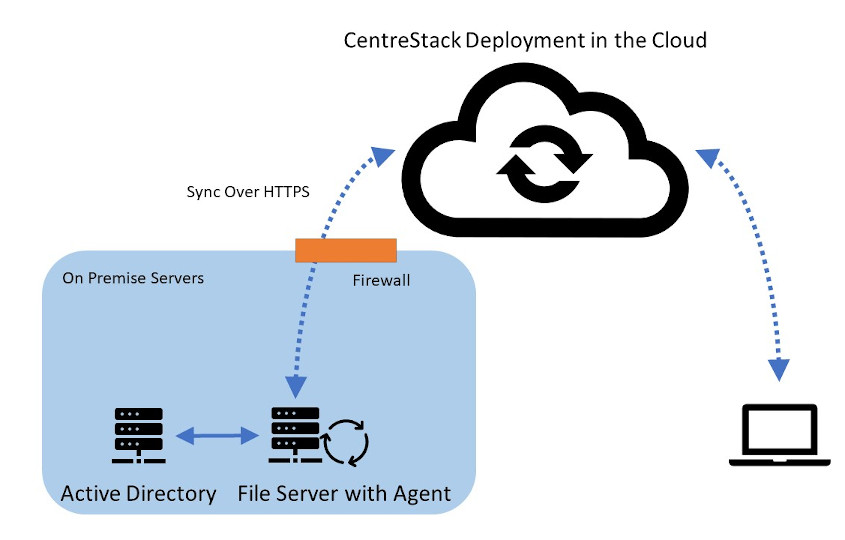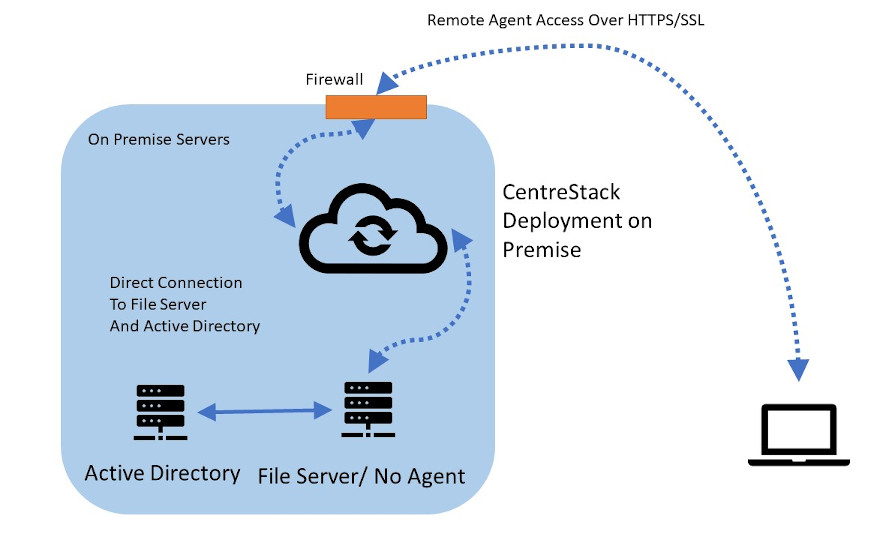

Microsoft Azure blob storage, for the most part, is designed for independent software vendors (ISVs) to build business solutions, and not for direct use. There are some that are more user friendly, like Azure AD and Azure Virtual Machines, but most are meant to be used via API by ISVs.
CentreStack adds secure remote access and file sharing, disaster prevention and recovery, to file servers on-premises with easy cloud migration to Microsoft Azure blob storage.
Remotely access file shares from a drive letter without the need for a VPN. Mobile applications included!
Minimize storage and bandwidth consumption by automatically syncing and caching only the files you need.
CentreStack adds version control and file protection from Microsoft Azure blob storage to the local file server.

Granular folder permissions that can mirror NTFS permissions or start from scratch.
Preserve NTFS permissions and Active Directory (Azure AD) identities when connecting file servers to Microsoft Azure.
Local file server and Azure blob storage synchronize with each other for business continuity and easy cloud migration.
Install CentreStack File Server Agent on the file server that will migrate to Azure over time. Supports Windows 2003/2008/2012/2016/2019 (32-bit/64-bit).
If the file server is in the same network as the CentreStack server, a direct connection is also possible (see Option #2).


If you've already migrated local file server data into the Azure data center with Azure virtual machines, CentreStack provides a direct file access solution from remote devices and mobile devices.
CentreStack file server integration and enablement installs agent software on your file server or directly mounts your file server's network share into CentreStack when direct access is available. It intelligently manages local and cloud storage together to provide a range of cloud enablement options.
Most importantly, the active directory security and NTFS permission model is maintained as if it was never changed. And drive mapping functionality is maintained so end users get a familiar drive letter to access files from remote locations. File locking is also maintained for multiple users collaborating on the same file at the same time.
File server network shares are synchronized to Azure Blob Storage to provide a secure access solution for Windows mapped drives, Mac Finder mounted volumes, iOS and Android.
Attach local file server folders to your CentreStack server to enable remote access. The original network shares remain accessible over the local area network.
Alternatively, file server content can be migrated over time to Azure blob storage to form a hybrid environment. In addition to remote access, this enables a background backup process for business continuity.
Create a global name space directory structure unifying different file servers into a single folder structure, enabling mult-site collaboration with a distributed cloud file system backed by Azure Blob Storage.
You can also leverage these features using an existing file server from Azure Virtual Machines as a private cloud.